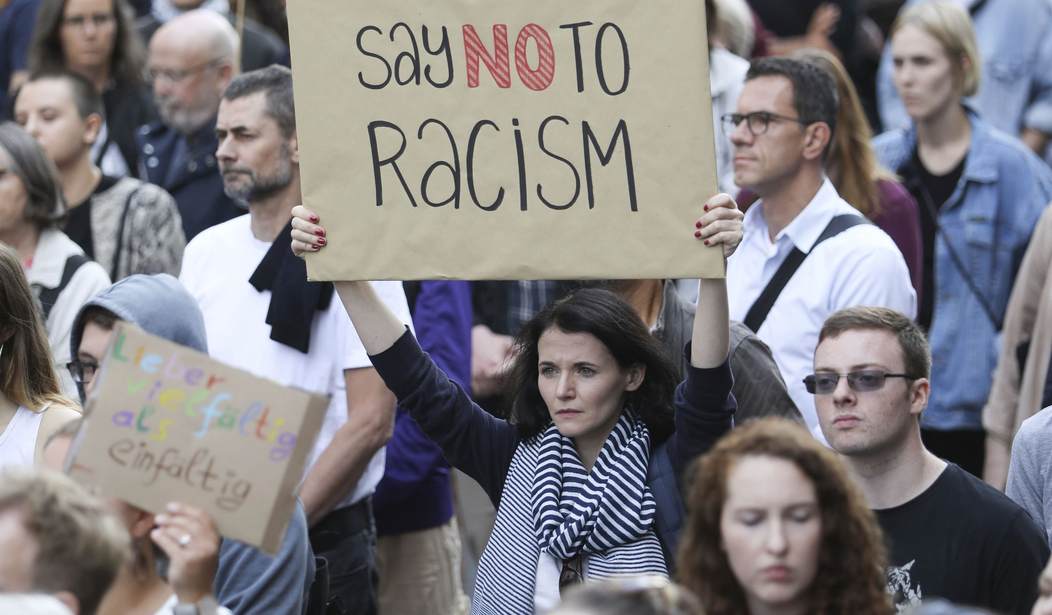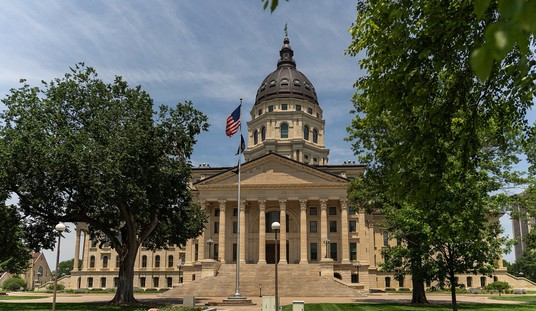The prospect of childbirth comes with challenges -- the potential for pregnancy complications, the need for medical support, and the threat of white supremacy. Thankfully, there's a college class for that.
The University of Minnesota School of Public Health has launched its Dignity in Pregnancy and Childbirth: Preventing Racial Bias in Perinatal Care course. The continuing education extravaganza updates health professionals on the beleaguering of "Black birthing people."
From the official press release:
Minnesota is facing a racial crisis when it comes to maternal health and infant mortality. Black birthing people in the state are twice as likely to die due to pregnancy complications than their white counterparts, and Indigenous birthing people are about four times more likely to die. Black and Indigenous babies are over two times more likely than white babies to die before they turn one.
There's a disparity, and it comes courtesy of structural racism; enter academic enlightenment:
To address these systemic, racially driven disparities in Minnesota, the state passed the Dignity in Pregnancy and Childbirth Act...which calls for the development of a series of anti-bias courses to be made available to hospitals with obstetric care and birth centers across Minnesota. Developed by the University of Minnesota School of Public Health (SPH) Center for Antiracism Research for Health Equity (CARHE), in partnership with the Minnesota Department of Health (MDH) and Diversity Science, the courses aim to integrate antiracism into reproductive care throughout Minnesota.
The Minnesota Maternal Mortality Report has likewise pointed to white supremacy's grip. From my previous coverage:
One might expect...inequity's cause to be non-malicious, but the state claims Caucasian corruption is at work. Therefore, among its "highlighted recommendations" for health workers:
Address bias in systems perpetuating disparities in the birthing population. Acknowledge historical trauma and racism and the impacts on birthing people.
Enter Preventing Racial Bias in Perinatal Care, created by CARHE Director Rachel Hardeman, PhD, MPH, and Diversity Science CEO and Distinguished Scientist Michelle van Ryn, PhD.
Professor Rachel believes for birthing people:
“We wanted these courses to center and uplift the voices and lived experiences of Black and Indigenous birthing people in Minnesota. Minnesota has a huge gap in maternal health rates between its white birthing population and its Black and Indigenous ones, and we believe these courses will raise awareness of these disparities."
Across arenas, efforts are being made to protect nonwhites from those who would choose to do them dirty:
Professor: Cancer Researchers Should Show Their Faces to Prove They Aren't White
Professor Prescribes 'Reregulation' to Help White People Stop Their Racist Violence
State University's Philanthropy Center Welcomes Half-White Activist Who Says 'F**k White People'
Dreadlocked Professor Says White People Aren't Allowed to Have His Hairdo
Science Journal Decries Racism in Geology, Claims Black People Are Too Scared to Hold Hammers
Back to Minnesota, here's a partial bio of Rachel Hardeman, heated by the hot trend of unnecessarily pluralized words:
I am a reproductive health equity researcher whose program of research applies the tools of population health science and health services research to elucidate a critical and complex determinant of health inequity—racism. I leverage the frameworks of critical race theory and reproductive justice to inform her equity-centered work which aims to build the empirical evidence of racism’s impact on health particularly for Black birthing people and their babies.
My research includes a partnership with Roots Community Birth Center, in North Minneapolis, one of five Black-owned freestanding birth centers in the United States. My work also examines the potential mental health impacts for Black birthing people when living in a community that has experienced the killing of an unarmed Black person by police.
Published in journals such as the New England Journal of Medicine and the American Journal of Public Health, my research has elicited important conversations on the topics of culturally-centered care, police brutality and structural racism as a fundamental cause of health inequities. My overarching goal is to contribute to a body of knowledge that links structural racism to health in a tangible way, identifies opportunities for intervention, and dismantles the systems, structures, and institutions that allow inequities to persist.
Rachel isn't only interested in protecting black people during pregnancy and birth via education. To that same end, she serves on the Board of Directors for Planned Parenthood of the North Central States.
Will abortion -- something disproportionately affecting black people -- prevent harm to black people? Will America's racial divide be bested by identifying white people as assailants against all others? Either way, one thing is evident: What Minneapolis -- home to the University of Minnesota and the George Floyd case -- needed more of was an emphasis on race.
The University is also offering an "Indigenous birthing course."
-ALEX
See more content from me:
Female Catholic College Carries Water for Wokeness, Welcomes Testicle-Toting 'Women'
State University's Philanthropy Center Welcomes Half-White Activist Who Says 'F**k White People'
Disneyland Streaker Goes Skinny-Dipping on a Ride, Gets Carried Out Naked by Cops
Find all my RedState work here.
Thank you for reading! Please sound off in the Comments section below.












Join the conversation as a VIP Member